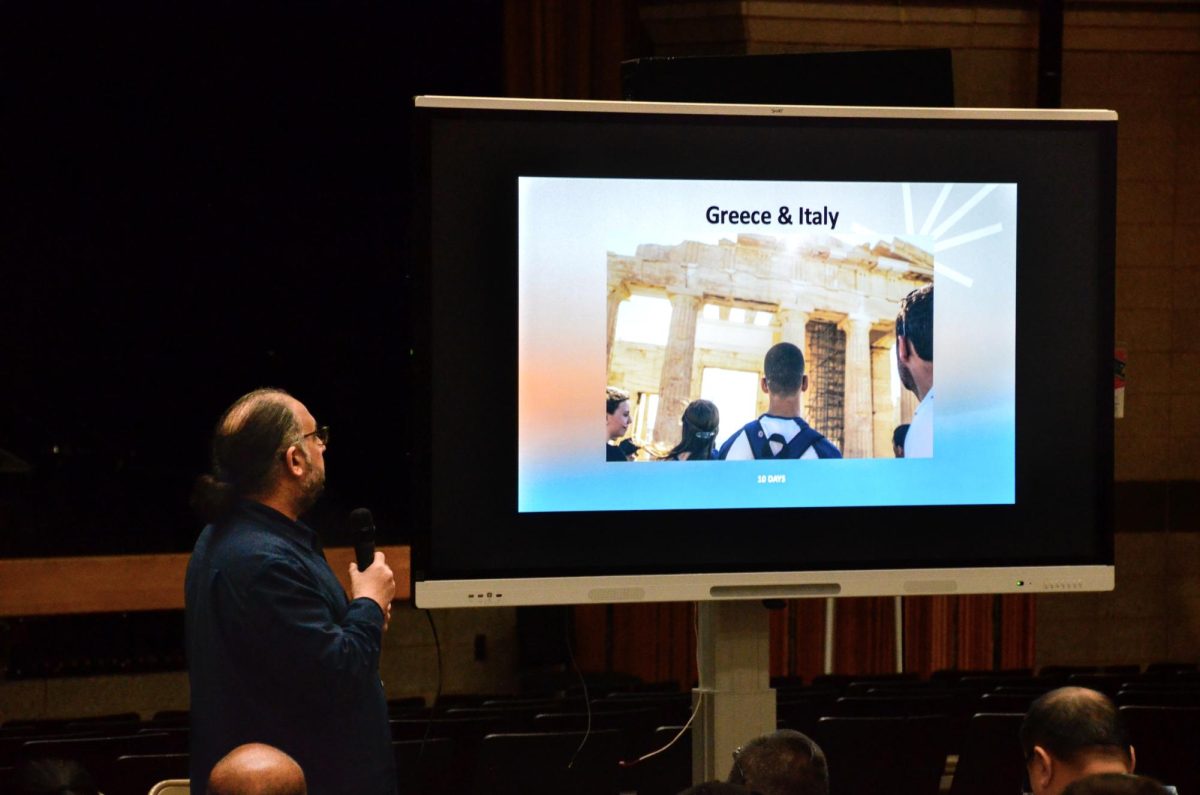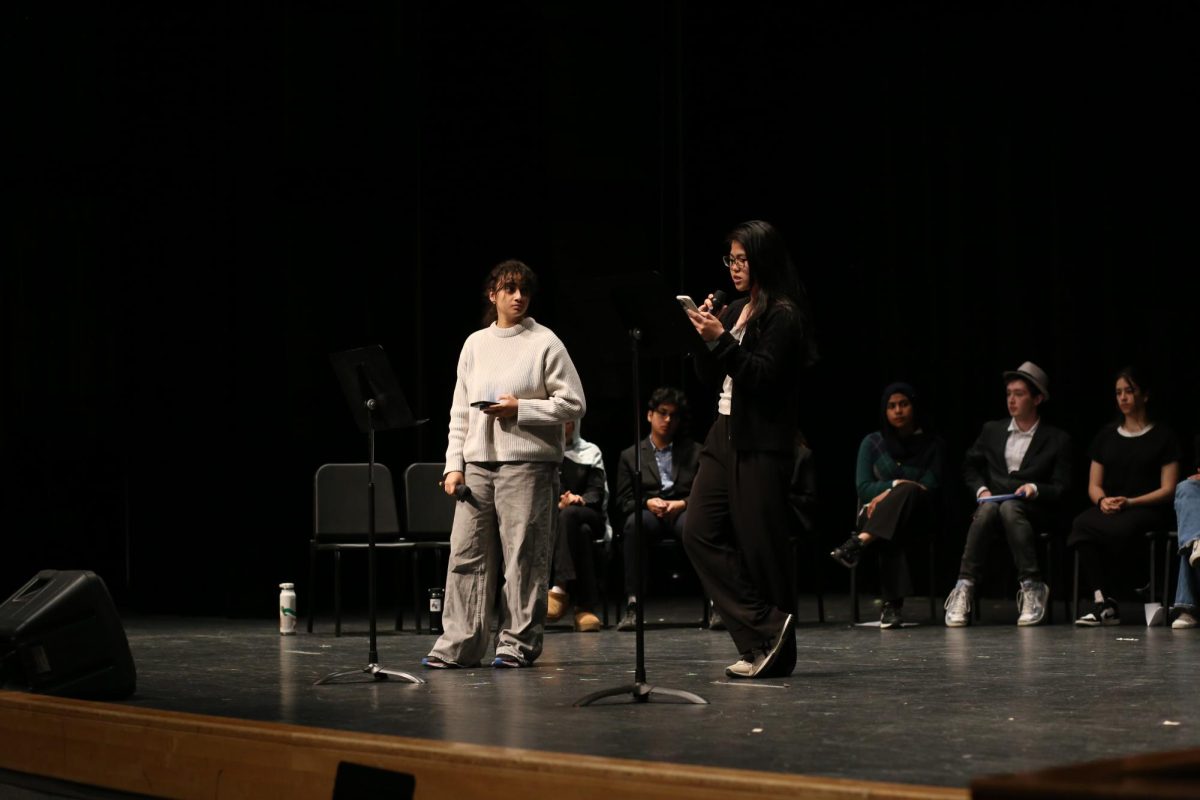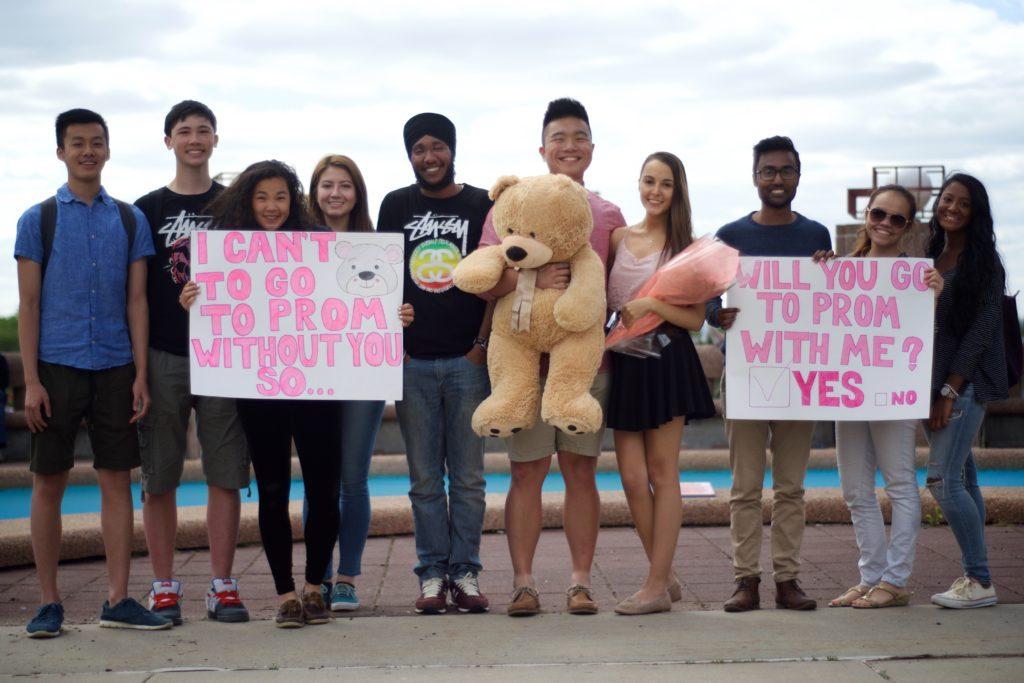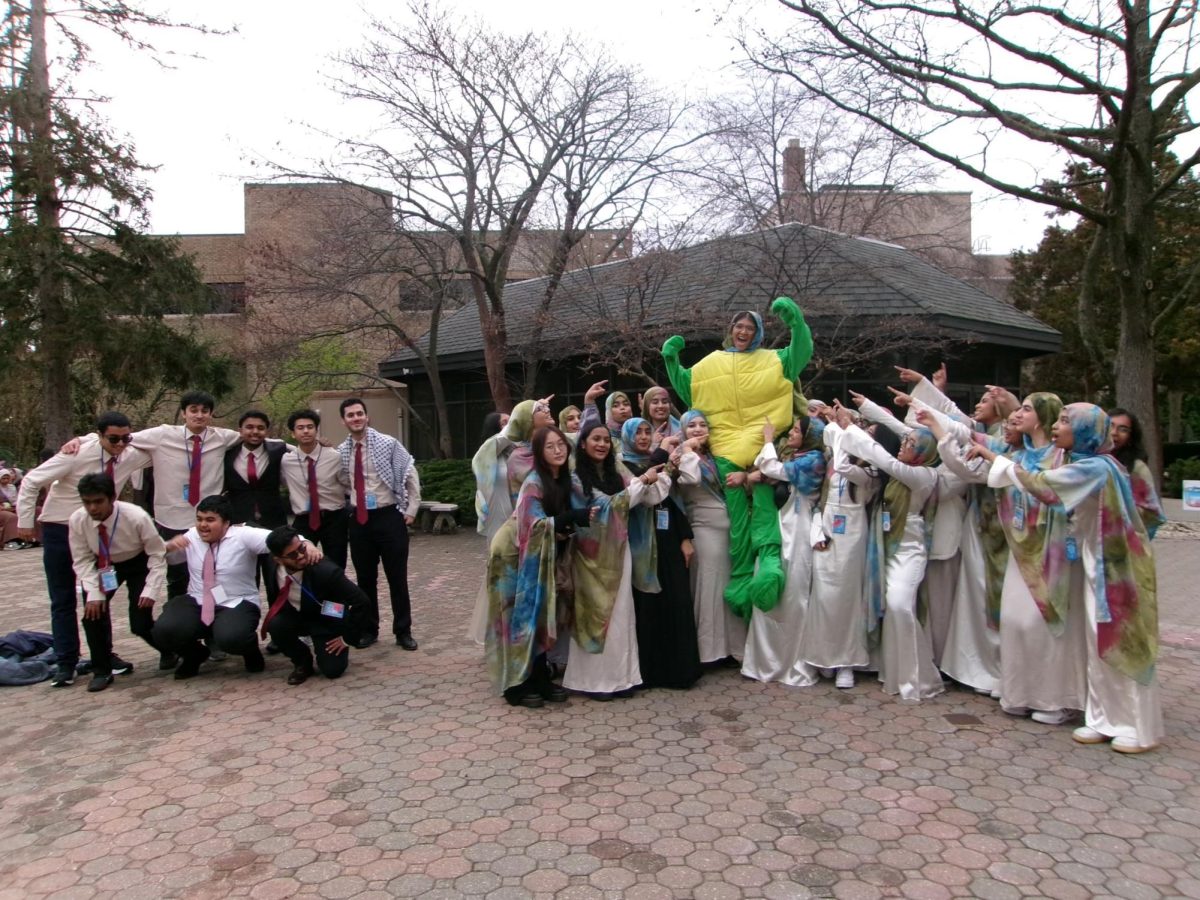
When the media publishes a news story on Townsend Harris High School, it usually involves scholastic or athletic achievements. Recently, The New York Post, Fox 5, and 1010 WINS radio covered THHS for reasons unrelated to academics: prom and the dress code. Both articles drew swift and passionate responses from members of the school community who questioned the accuracy and relevancy of the reporting.
It began on May 9, when the Post published an article on how THHS’s gender ratio disparity causes dilemmas for girls trying to procure prom dates. Despite the fact that several students they interviewed said that the gender disparity was not a big issue when it came to finding dates, the article was titled “Girls at this school can’t find prom dates—because there aren’t enough boys.”
Fox 5 subsequently interviewed students such as senior Gaby Cintron and her friends about their date situations. Gaby stated, “I feel like the newspaper only felt like using excerpts from people who reflected what they wanted to tell their audience, and not the truth. I know several friends of mine who told them that going to prom with no date was not a big deal, myself included, yet they didn’t include those excerpts.”
Another student interviewed by the Post, senior Rebecca Duras, said, “The school isn’t accurately represented. Everyone that was interviewed with me said we don’t care [about not having dates].” She feels the article cast the female members of the student body in a needier light than is accurate: “[the article portrayed] Townsend Harris girls as weeping wusses waiting for a man to save us or at least date us.”
News radio station 1010 WINS reported the story in their morning news segment following the printed story in the Post. Fox 5 arrived on the scene after the initial publication by the Post, and also interviewed Harrisites, but it did not air the story.
Principal Anthony Barbetta agreed that the Post’s article failed to represent the THHS community. He said, “Many of the girls said that they had dates. I don’t think that it fit their narrative [of] what they’re looking for.”
Nine days later, on May 18, the Post published another article on social issues at THHS. This one focused on a dispute between a Harrisite (who wished to remain anonymous and declined to comment for this article) and the administration. The online headline read “Girl Banned from Prom for Wearing Completely Appropriate Dress,” while the printed version of the coverage was similarly headlined “I Was Banned from Prom by…Clothes Minded School.”
The report quickly inspired a response from the student body, many of whom considered the article riddled with inaccuracies and unfairly biased against the school administration. Some reacted to the title: the student in question could not attend Junior Banquet rather than the “prom.” The online headline implied that the student was directly barred from the event for wearing a particular dress.
“We’ve never told a student for an event that is outside of school that they cannot attend for the attire that they are wearing [when they arrive],” Assistant Principal of Health, Physical Education and Organization Ellen Fee said.
When asked if students ever get banned from social events for demerits accrued solely from dress code violations, Mr. Barbetta said, “Students are usually banned when they accumulate demerits, but when I review them or Dean Figelman [does], I don’t think it’s ever been all for dress code [violations].”
A student must accrue more than nine demerits to be barred from attending a social event.
Junior Jasmine Brite said, “I honestly don’t find it to be a newsworthy story.”
Senior Gaby Cintron added, “[The article] was written with the pretense from a student and parent who were personally upset with [Dean Robin Figelman], instead of reporting the exact truth.”
Inaccuracies in the article aside, a number of students support the core issue that the student described in the article wanted to focus upon: the idea that the dress code and the demerit system are unfair. Junior Adrienne Cabral said “I don’t like the lack of respect in approaching students who violate the dress code. …I don’t think anyone should be made uncomfortable in their school environment, especially based on what they’re wearing.”
More were bothered by the article’s apparent attack on the administration. A backlash against the article’s portrayal of Ms. Figelman erupted quickly amongst the senior class, resulting in the hashtag #StandWithFig. Students hung a copy of the article in the attendance office and signed it in order to show their support for the dean.
The article itself came in the wake of a small student protest led by the student featured in the article. The protest group focused on injustices in the dress code and other school policies. As Adrienne explained, “Our goal is to gain respect from the administration through altering the dress code and the demerit system.”
She added, “I think we should keep protesting to show the solidarity among the student body and desire for change.”
Ms. Figelman says that the members of the protest never came to her with their complaints. “It is not clear to me what it is all about because no one has approached me about it,” she said.
Similarly, though the Post article claims that Ms. Figelman declined to comment, she claims that she was never approached for comment by the writer of the piece. That writer, Aaron Short, declined to comment on this story in an e-mail exchange.
“The school is definitely divided on [the issue of the dress code], but the article really only showed the student’s side,” said junior Sarah DeFilippo.
Junior Jensine Raihan added, “I think the coverage is definitely one sided and heavily biased. Although the dress code policy is inherently sexist, it is unfair to put all the blame on Ms. Figelman. If anyone is to be targeted for the dress code policy it is the Department of Ed.”
“There were so many details that were off in the articles [that] it was a waste of my time reading them,” sophomore Thomas Chu remarked.
Sarah added, “A lot of people now think that Townsend Harris is full of active anti-feminists and gender-biased policies, which I and many others would disagree with, if only these ‘reporters’ would ask us.”
More than bias, many simply saw the coverage as frivolous.
“We want our name to be out there for all the great things you guys accomplished, not because of prom dates and short skirts,” Senior Advisor Maria Assante commented.




























